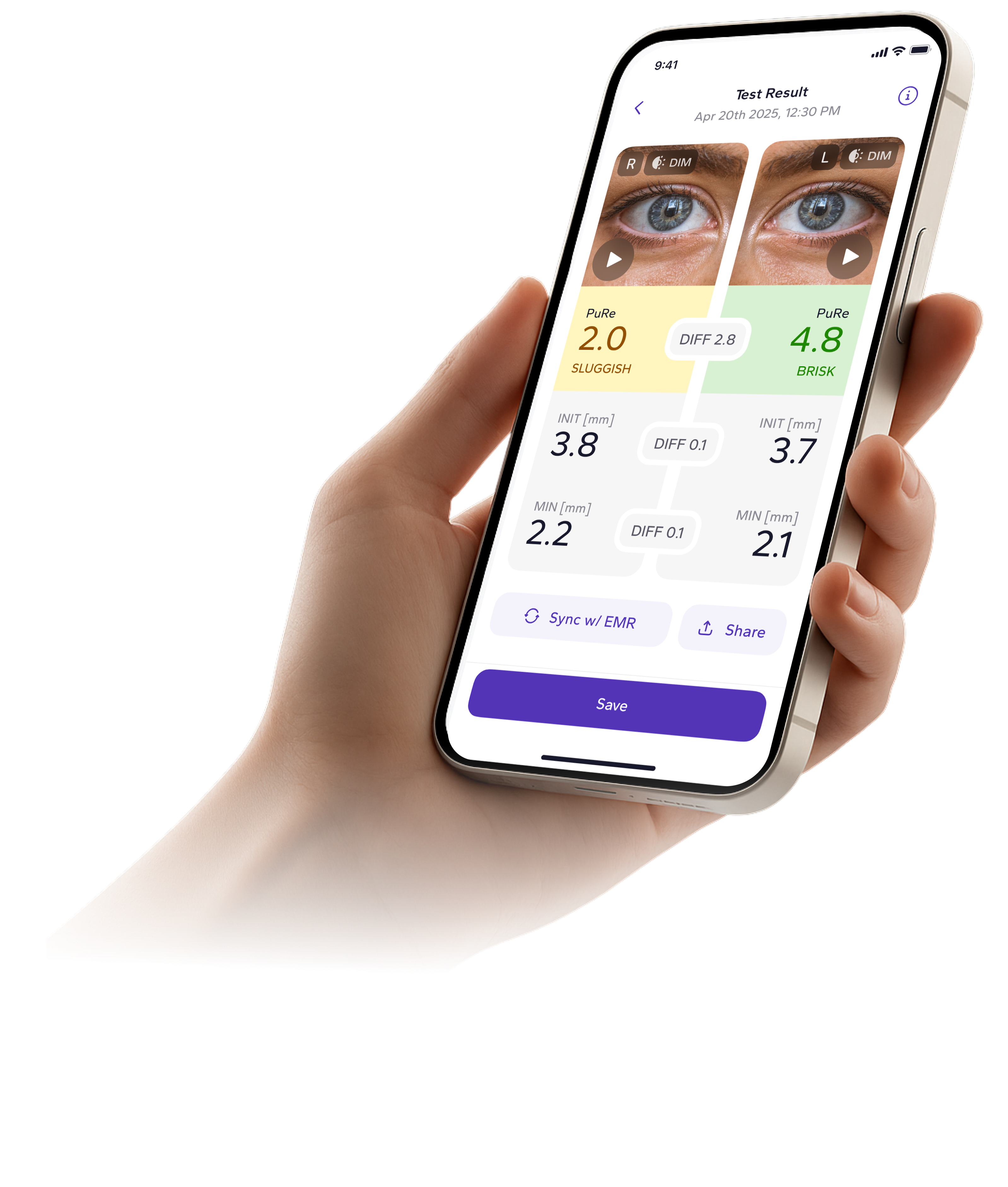Superior accuracy. No disposables. Instant EMR upload.

Solvemed's smartphone-based FDA medical device enables accurate and reliable pupil size and reactivity testing without the need for any hardware.
No more looking for a pupillometer around the unit — it's with you when you need it.

No more "smart" plastic eye cups. Save time, money, and the environment.
Accurate pupil testing in any ambient light conditions.
Integrates with your hospital's EMR system (optional).
Neurological exams rely on pupillary assessment. Yet, pupil testing tends to be either subjective and thus prone to inaccuracies or performed with expensive and cumbersome conventional infrared pupillometers, whose accuracy can be significantly impaired by ambient light.*
Conventional pupil reactivity index dropped 0.7 or more in one-fourth of left eyes in dark vs. bright conditions.¹
of pupillometry parameters changed directly due to the ambient light change¹, with 7/8 reported previously.²
of patients showed a difference of 0.6 or more in reported pupil reactivity in dark vs. bright conditions.¹
Conventional pupil reactivity index grew 0.7 or more in 25% of left eyes after a switch from bright to dark conditions.¹




PuRe™ Pupillometer shows superior clinical performance across various levels of ambient light compared to conventional pupillometers.

Solvemed’s computational pupillometry represents a novel method to effectively mitigate the confounding effects of ambient light. Exposure level and initial pupil size are used to compute lighting-corrected parameters, with are then combined to optimize discrimination between reactive and unreactive pupils, resulting in the PuRe score.
The formulae behind the score are openly available for the benefit of the clinical research community.








We leverage industry-leading connectivity and security measures to let you focus on the patient.
Effective Electronic Medical Record (EMR) integration lets health care teams focus on the patient. To that end, PuRe Pupillometer supports effecrtive integration with all major hospital EMRs using latest data encryption and connectivity industry standards.
The system represents a convergence of advanced software and robust data security mechanisms. It harnesses the inherent security features of Apple's iOS, including Face ID and HIPAA-compliant web services to ensure secure authentication of users and data transfers.










Solvemed’s PuRe™ Pupillometer has been designed with IT security and patient privacy in mind. We employ the latest encryption standards for maximum compliance.




We work closely with clinicians to develop game-changing tools that reshape clinical practice and research.
neuro-ICUs
medical-ICUs
cardiac-ICUs
surgical-ICUs
trauma centers
stroke units
emergency rooms
nursing staff
physicians
researchers